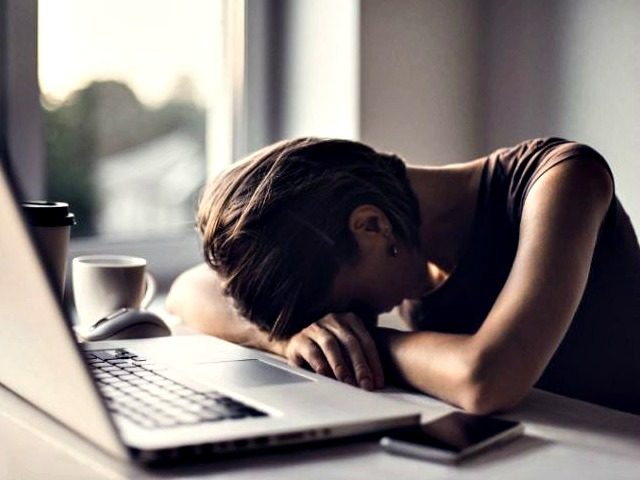There is a clear and present danger that lockdown measures aimed at stemming the spread of the novel coronavirus may fuel mental health issues like suicides, Dr. Francis Collins, the director of the National Institutes of Health (NIH), warned this week.
During an interview published by the medical news outlet STAT on Tuesday, Dr. Collins acknowledged that quarantine measures like social distancings, currently impacting more than 95 percent of U.S. residents, may increase mental health illnesses, particularly suicides, in some areas, telling STAT:
It is interesting that if you look back over history, when we have had other times of major national stress, it looks as if, for the most part, actually, illnesses, and even mortality, seems to actually not be as bad during those situations.
But that’s not true of specific areas, and particularly with suicide, one worries about the people who already are struggling with depression, and then are put in a circumstance of being isolated from others. That’s exactly the wrong thing.
So that’s one more reason why we need to figure out [the health consequences of the lockdowns] in a safe way, and an evidence-based way how we can get ourselves back out there again, because people are suffering with this.
Dr. Collins’ comments came in response to STAT asking about his views on Trump’s prediction that there is a real health cost to keeping people cooped up in their homes for long periods.
“I think we do have to take that seriously,” the director of the NIH, a component of the U.S. Department of Health and Human Services (HHS), said about Trump’s warnings.
The director also noted that the NIH is working to determine the expected health consequences from the ongoing coronavirus lockdowns, saying:
We set up a series of 10 significant trans-NIH research initiatives, bringing together all of the best and brightest leaders that we have around us — virtually, of course — to try to address things that we would all want to know about the consequences of this as well as ways that we can help end it.
Obviously, that includes things like vaccines and therapeutics, but one of those initiatives is very much about the mental health consequences of what this has done, socially, by asking people to stay at home for long periods of time, losing those face-to-face personal connections.
Citing U.S. government and independent assessments, Breitbart News has acknowledged early this month that the financial crisis triggered by the coronavirus lockdowns will likely increase deadly drug abuse and suicides, particularly among the unemployed.
The leftist mainstream media, however, had a meltdown over Trump’s warnings of surging suicides if nationwide social-distancing guidelines that have closed many non-essential businesses and have triggered a spike in unemployment stay in place.
President Trump, however, doubled down on his argument that more people will die from “depression” if they are unable to get back to work.
“People get tremendous anxiety and depression, and you have suicides over things like this when you have terrible economies,” Trump declared during a briefing on March 23, adding that he believes the lockdowns will lead to more mental health issues.
“You have death. Probably and — I mean, definitely would be in far greater numbers than the numbers that we’re talking about with regard to the virus,” he added.
At one point, the number of suicide deaths in east Tennessee exceeded the coronavirus fatalities there, the Federalist reported in late March.
Even after acknowledging in 2012 that economic recessions tend to fuel a spike in suicides, the likes of the New York Times dismissed Trump’s predictions as “baseless.”
A so-called fact-check by the Associated Press (AP) went as far as insisting that suicide rates may “diminish” during financial woes.
“There’s no evidence that suicides will rise dramatically, let alone surpass potential coronavirus deaths. Historically in a crisis, suicides tend to diminish as society pulls together in a common purpose,” AP claimed.
Meanwhile, crisis hotlines like the National Suicide Prevention Lifeline, have reportedly experienced a dramatic surge in calls.
The NIH director echoed Trump’s predictions about the potential impact the coronavirus-triggered economic distress may have on mental health.
White House officials have issued guidelines for reopening the country’s economies, prompting some states to prepare for the end of the lockdowns.
As of Monday, “at least 316 million people in at least 42 states, three counties, 10 cities, the District of Columbia and Puerto Rico [were] being urged to stay home,” the New York Times noted in an article that is updated regularly to reflect the quarantine measures implemented across the country.
The number of people living under some variation of a “stay at home” order amounts to about 96 percent of the U.S. population of nearly 330 million.

COMMENTS
Please let us know if you're having issues with commenting.